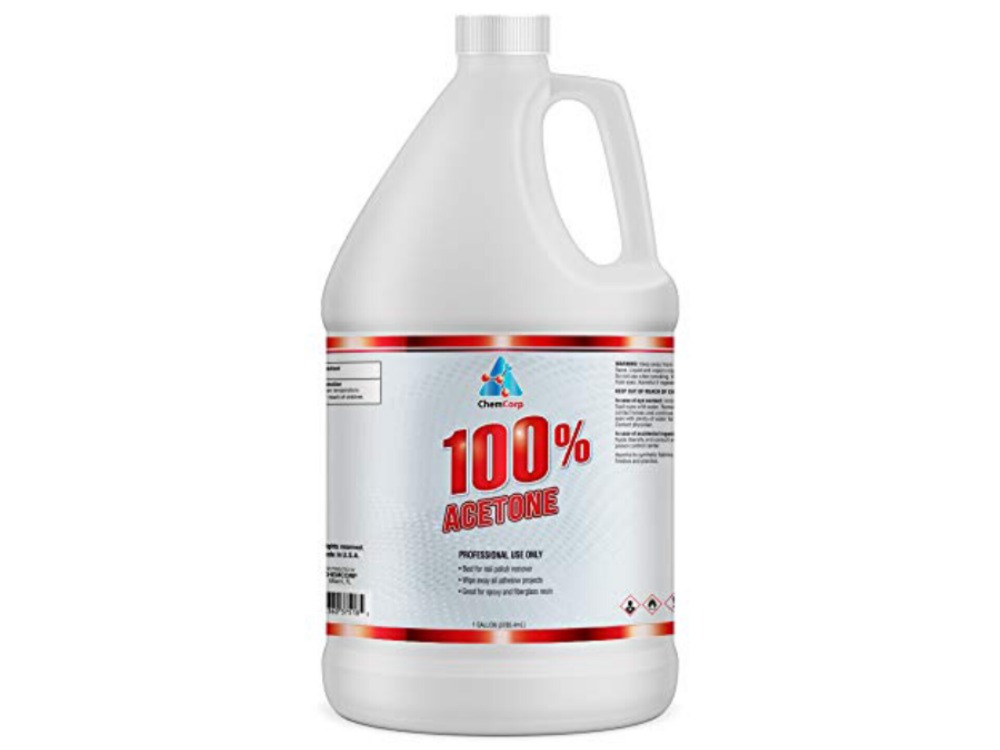Price of Acetone per litre in Ghana

Acetone, which is also known as propanone, dimethyl ketone, and 2-propanone is a colorless, volatile liquid that is commonly used as a solvent in various industrial and consumer applications.
Acetone is composed of three carbon atoms, six hydrogen atoms and one oxygen atom. its chemical formula is CH3COCH3. It has a molecular weight of 58.08 g/mol and a boiling point of 56.05°C.
Acetone is commonly used as a solvent for various organic compounds, including polymers, resins, and oils. It is also used as a cleaning agent in industrial and household settings, as well as a component in various cosmetic and personal care products.
it is commonly used as a nail polish remover. Its ability to dissolve many types of polymers makes it an effective way to remove nail polish without damaging the underlying nail.
Acetone is a highly flammable substance and should be handled with care. It should be stored in a cool, dry place away from any sources of heat or ignition.
Uses of acetone in various industries
- It is used to dissolve and remove nail polish from nails quickly. It is also used to remove oils and other impurities from the skin, leaving it clean and fresh.
- Acetone is used as a solvent in the manufacturing of drugs, vitamins, and other healthcare products. It helps to dissolve the active ingredients, making them easier to mix and process.
- Acetone is used as a solvent in the production of paints, varnishes, and lacquers. It helps to dissolve the pigments and binders, making them easier to mix and apply.
- Acetone is used in the automotive industry to clean and degrease engine parts, wheels, and other automotive components.
- Acetone is used in the electronics industry to clean and degrease electronic components such as circuit boards and other sensitive equipment.
Price of acetone per litre in Ghana
The average price of acetone in Ghana ranges from GHS 25 to GHS 30 per liter. The price may vary depending on the quantity purchased and the location of the buyer.
The price a buyer in Accra will pay for Acetone will be different from that of a buyer in Koforidua or Kumasi.
Factors affecting the price of acetone in Ghana
1. Raw Material Prices
Acetone is produced a chemical which is derived from petroleum. When the price of petroleum is high, the cost of producing isopropyl alcohol increases, which makes the price of acetone increases.
2. Demand
When there is a high demand for acetone, manufacturers and suppliers tend to increase the price to maximize profit.
When the demand is low, the price tends to decrease as suppliers try to clear their stocks.
- Advertisement -
3. Supply
When the supply is low, the price tends to increase since the available quantity cannot meet the demand. When the supply is high, the price tends to decrease as suppliers try to sell their stock.
4. Production Cost
When producing acetone, it involves several stages that require energy, labor, and equipment.
When the production costs increase, the price of acetone increases as well. When the production costs decrease, the price tends to decrease as well.
5. Exchange Rates
The exchange rate of a country’s currency is another factor that affects the price of acetone.
Since acetone is mostly imported into Ghana, the exchange rate between the Ghanaian cedi and the currency of the exporting country can affect the price.
Conclusion
The price of Acetone in Ghana is highly attributed to a number of factors such as high importation costs, taxes, and transportation costs.
The price of Acetone can reduce in the government priorities on the production of chemicals used for Acetone production.
It is important for all stakeholders in the chemical industry to work together to find solutions that will make acetone more affordable and accessible in Ghana.


